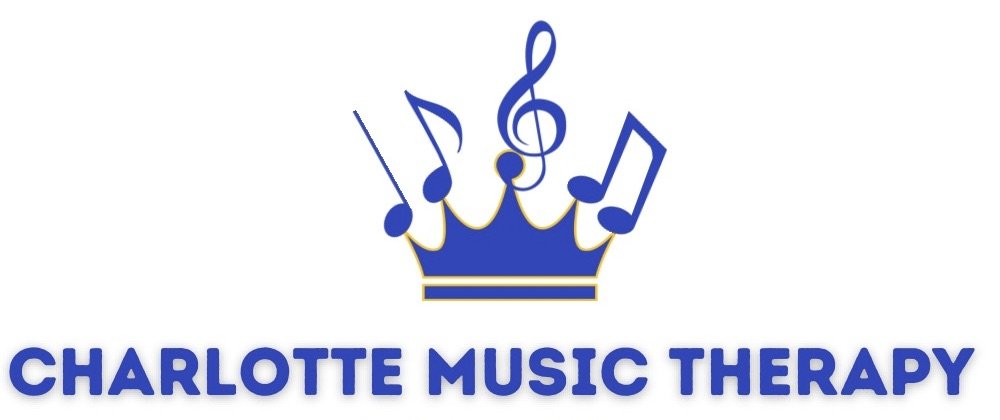What is Music Therapy?
Music therapy is the clinical and evidence-based use of music interventions to accomplish individualized goals within a therapeutic relationship by a credentialed professional who has completed an approved music therapy program.
Music therapy has the potential to positively impact virtually every population.
What are typical goals addressed in a music therapy session?
Goals and objectives are specifically tailored to meet the needs of the individual(s) benefitting from music therapy services. Goals may address the following needs:
Cognitive
Physical
Behavioral
Educational
Social
Emotional
Spiritual
Examples of specific goals include:
Increasing attention (sustained, divided, alternating, etc.)
Improving fine motor skills
Improving behavior flexibility
Improving social skills
Improving speech production
Improving impulse control
Improving gait control
Music therapy participants may have a multitude of goals addressed in each session.
Mason working with a client who has cerebral palsy.
Mason with a RN in the Mercy emergency department.
What does a typical session look like?
Depending on needs of the participant(s), sessions typically begin with orientation to time and place (“Hello Song”) and end with a “Goodbye/Farewell Song”. Throughout the session, goals are addressed through numerous creative musical interventions. Interventions include:
Active music making and improvisation on a wide variety of instruments
Music education and adapted lessons
Songwriting
Neurologic Music Therapy techniques (for speech and language, sensorimotor, and cognitive domains)
Relaxation techniques and other positive coping skills
Sessions may last 30-120 minutes, depending on individualized needs.
A client engages in a virtual music therapy session.
Weekly drumming group with middle and high schoolers at The Nest Academy.






